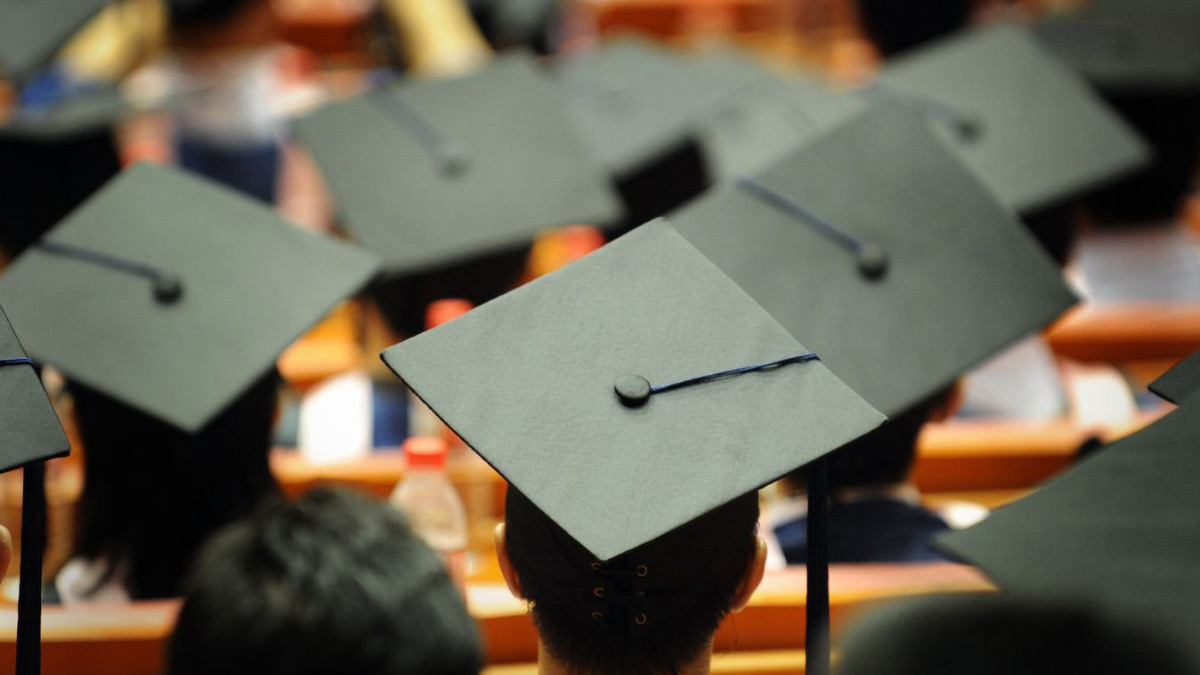The recent Varsity Blues college admissions scandal shows affluent Americans will pay large sums to get their kids into prestigious universities. But why? The evidence is that U.S. colleges suffer from three big deficiencies: They are too expensive, there is relatively little learning going on, and graduates often are “underemployed,” taking relatively low-skilled jobs traditionally mainly filled by high school graduates.
Colleges are too costly
Over the past 40 years, the cost of college has roughly tripled. Whereas between 1840 and 1978 tuition fees rose roughly 1 percent annually adjusting for overall inflation, that tripled in modern times, mainly because new federal student financial assistance programs have provided colleges with a golden opportunity to raise fees.
With added revenues gained from rising enrollments and higher fees, colleges have gone on an academic arms race. They have built fancier physical facilities, with atriums, climbing walls, and even “lazy rivers.” They have allowed spending on intercollegiate sports to soar, at an increasing cost to students. Above all, they have engaged in massive administrative bloat, hiring swarms of diversity coordinators, sustainability directors, assistant deans, etc., so now at many schools there are more bureaucrats than teaching faculty. Moreover, students spend little time on studies (on average, less than eighth-graders) and faculty teaching loads are embarrassingly low at many schools—resources are vastly underutilized. Much faculty research is of trivial importance and little read. Even the buildings are empty much of the time.
Too little learning
Colleges are in the knowledge business, but not eager to spread knowledge about their own students’ learning, probably because the evidence is rather embarrassing. The dated but useful federal Adult Literacy Survey shows literacy of college graduates has been declining. The Intercollegiate Studies Institute’s tests of students show seniors at schools have very little more basic understanding about our civic institutions than freshmen. Seniors in college have very little better critical reasoning or writing skills than freshmen, as measured on the respected Critical Learning Assessment test instrument. Most ominously, at many schools, free speech and debate seem to be under attack, schools worrying more about making their students comfortable than challenging them with ideas that often are disconcerting.
Student underemployment
The Federal Reserve Bank of New York said that 41.4 % of recent college graduates in December 2018 were “underemployed,” doing jobs mostly held by those with lesser education. In 1970, about one of every 150 taxi drivers were college graduates; by 2010, some 24 were—and the number is still growing. We actually have too many college graduates for the number of professional, managerial, and technical jobs available—even in the red-hot labor market. The college-high school graduate earnings differential, once rising steadily, has leveled off and may even be declining slightly.
Changing the system: The three “I” words vital to reform
What to do? While politically quite liberal, universities are very conservative when it comes to changing their own ways of delivering educational services, and much nudging from outside—governments, important private donors—will be necessary. Three words beginning with “I” are critical to successful change: information, incentives and innovation.
Customers (future students) are usually pretty clueless about which school best fits their interests. They are unaware of the risks of not graduating, of the burden of student debt, of vast variations in successful outcomes for different college majors, etc. Colleges themselves often do not know which units are successful in instilling learning and which are not. Do kids at Harvard truly learn more than those at Pitt, Carnegie Mellon or Duquesne? Who knows? The Department of Education’s College Scorecard is a start at alleviating some of the problem, but much more needs to be done.
Students don’t study much because they get high grades even when lazy—we need to incentivize them to study harder by ending grade inflation. We need to incentivize professors to teach more and spend more time with students, reducing incentives to write obscure papers few read. We need to incentivize college presidents financially to keep costs down. President Mitch Daniels of Purdue has frozen tuition fees for seven years—why can’t others do the same?
Colleges are often slow to adopt new teaching methods—I teach the same way, roughly, as Socrates did 2,400 years ago. We need to more aggressively integrate computer and related technology with traditional learning.
For a vastly more elaborate account on all of this, with details about such things as college athletic scandals, administrative bloat, and the diversity and sustainability craze sweeping campuses, read my new book, Restoring the Promise: Higher Education in America, out May 1 from the Independent Institute.












